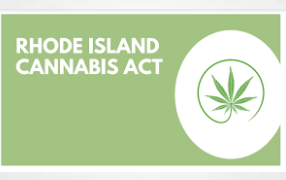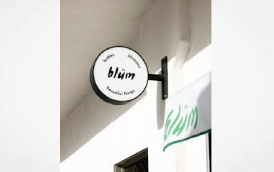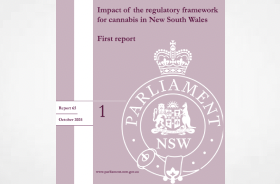Providence Journal reports on yet more completely unthought out rules and regs
PROVIDENCE – Robert Pena and his partners in PVD Flowers have planned a fundraiser for Wednesday evening at the Point Tavern as they pursue becoming the state’s first worker-owned cooperative marijuana store.
They’re looking to attract investors and generate community interest in an enterprise only now possible with the passage two years ago of legal recreational marijuana.
But their ambitions are outpacing what’s immediately feasible.
The state’s Cannabis Control Commission, which has only been in existence since June, must still, among many other decisions to be made, determine how six regional co-op retail licenses up for grabs will be issued, and who will qualify as eligible applicants.
The same holds true for the six so-called “social equity” retail licenses, which the legalization law also reserves to help minorities and their communities disproportionally hurt by past drug prosecution enter the marijuana business.
Pena says he and his business partners, who have been working on a co-op business plan for almost a year, are anxious and essentially stalled from moving forward until the Cannabis Control Commission finishes writing the rules for the new program.
“Oh yeah. I feel like we’ve been ready to accept a license for a while, but we are kind of stopped, just from a legal standpoint because there are no licenses to apply for. It forces us to change our business plan. We might have to wait a year-and-a-half to even get a license, never mind open up a [marijuana] dispensary.”
$1.1M held for social equity applicants – but no one to give it to
Other questions linger around another special provision of the legalization law: the newly created state social equity assistance fund.
Funded through the license fees of some 60 operating marijuana cultivators and seven dispensaries, the fund was established to offer financial assistance and business guidance to qualified social equity applicants wanting to get into the marijuana industry. (The fund currently stands at about $1.1 million.)
What qualifications will be necessary for applicants to receive state financial assistance? How much could each applicant receive?
“The details of the future program are still being crafted and reviewed and are not yet ready to be shared publicly,” Matthew Touchette, spokesman for the Department of Business Regulation, said in an email.
The Cannabis Control Commission “is actively engaged in efforts to create and establish the details of Rhode Island’s social equity program, including hosting several public listening sessions, meeting with stakeholders, and learning from programs established in other states. “
The commission “aims” to complete its work by year’s end, said Touchette.
More: RI’s first pot co-op hopes to light the way toward social equity for cannabis businesses
Bill would put more money into the still untapped social equity fund
Meanwhile, there is concern among social equity advocates that the social equity fund won’t be big enough for everyone it is intended to support, considering, they say, that the cost for each social equity applicant to get a business off the ground could exceed $1 million.
State Rep. Leonela Felix is sponsoring a bill this legislative session (H7855) to create an additional revenue stream for the social equity fund to grow the pot of assistance.
The bill would redirect half of the state’s 10% excise tax now levied on recreational pot sales and distribute that money evenly between the social equity fund and a new fund earmarked for improvements in “disproportionate impacted areas,” like housing.
(In the first full year of recreational pot sales, from December 2022 through December 2023, recreational cannabis sales amounted to $77,655,420.)
The bill would also close a “loophole,” Felix says, that now exists in the current legalization law which potentially allows anyone with a lot of money who donates in some way to a disproportionately impacted area to qualify for a social equity license, reserved for a minority.
“As written right now, someone like [Amazon founder] Jeff Bezos could give to a disproportionate impacted area and qualify for a social equity license,” she says. “We want to make sure these licenses and these monies are really earmarked for the purposes they were intended.”
More than a year after legalization, no social equity rules yet
The 2022 Rhode Island Cannabis Act that legalized recreational marijuana gave the Cannabis Commission some guidance in getting the social equity program started.
It defines a social equity applicant as someone who “has been disproportionately impacted by criminal enforcement of marijuana laws, including individuals convicted of nonviolent marijuana offenses, immediate family members of individuals convicted of nonviolent marijuana offenses and individuals who have resided in disproportionately impacted areas for at least five of the last 10 years as determined by the commission after consultation with the cannabis advisory board.”
But the commission must still create guidelines to determine “how to assess which communities have been disproportionately impacted and how to assess if someone is a member of a community disproportionately impacted.”
It will all take time.
Much of the early guideline discussions are being hashed out by the Cannabis Commission’s 18-member advisory board.
Felix says “I’d rather they get things right than rush through the process and then we regret going too quickly. Because once we [award] a [retail] license, we won’t be able to, as I see it, just take it back.



















